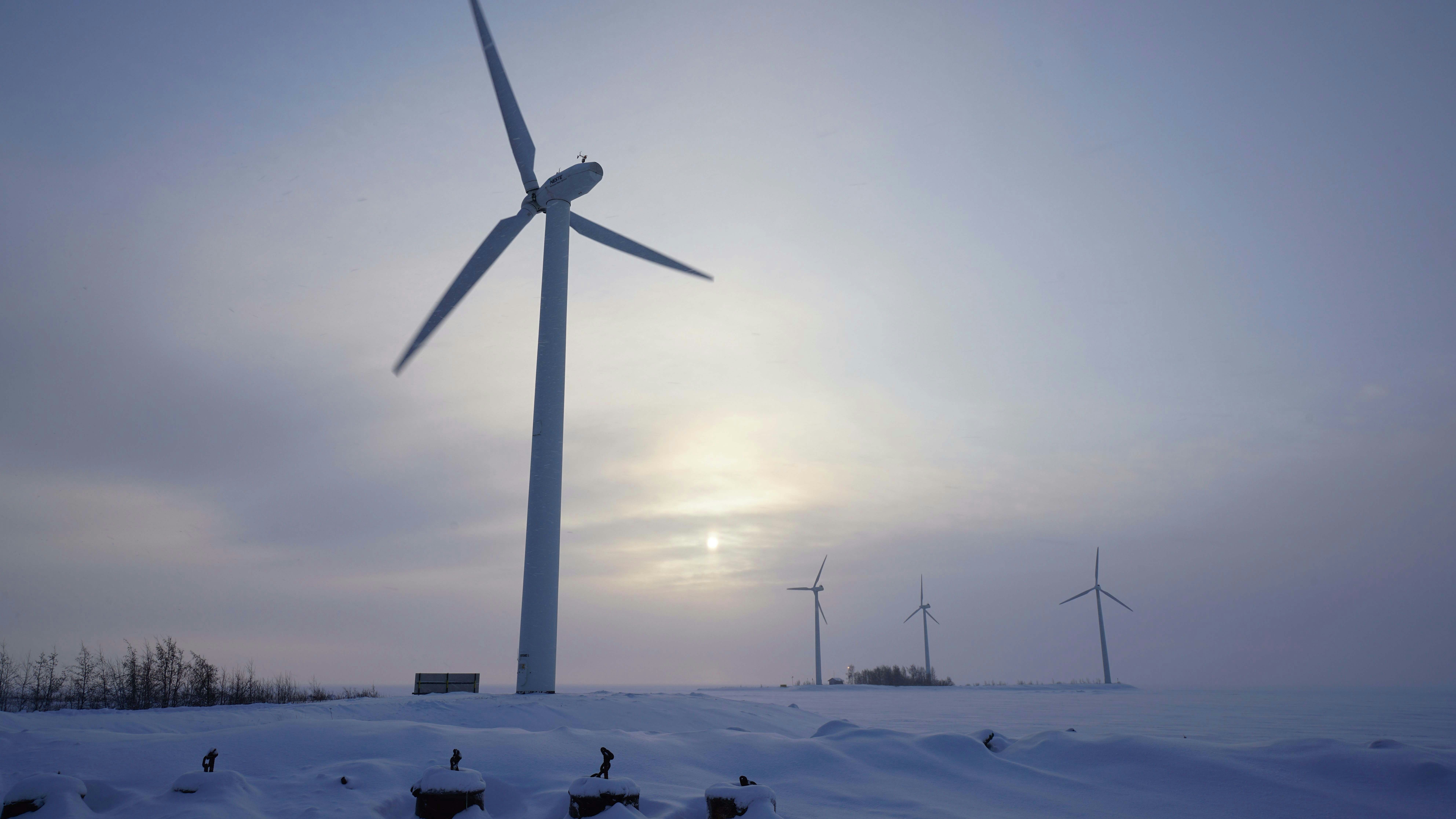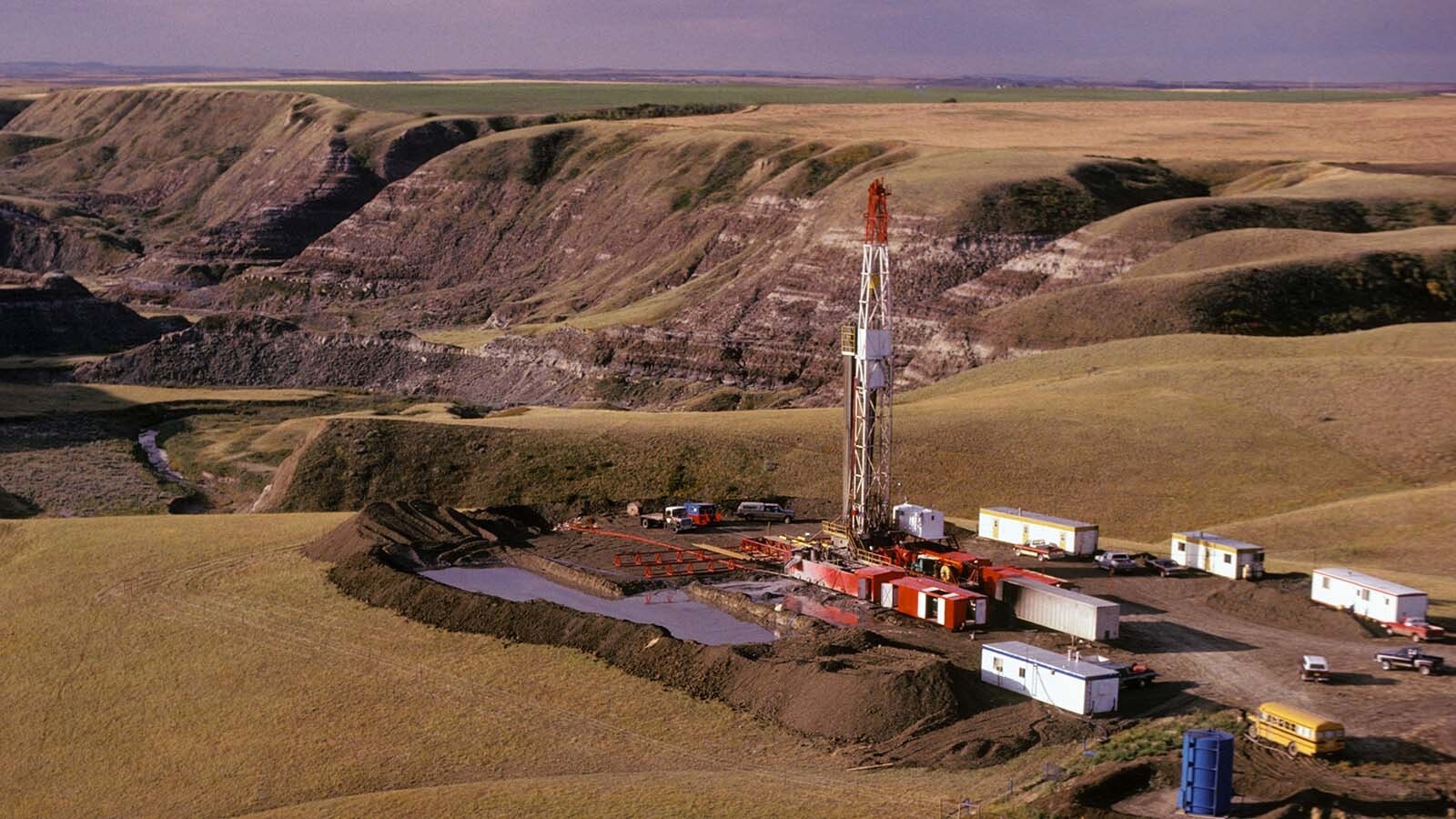Gov. Mark Gordon has vetoed legislation that would have prohibited wind farms owned by independent power producers from using eminent domain to build transmission lines through private property to connect to the power grid.
Problematic Issue
House Bill 106 reinstates a state statute that expired in June 2015 and extends its sunset date to June 2032.
The bill would only apply to independent power producers (IPP), which are wind farms owned by private companies and not public utilities.
Public utilities are regulated by the Wyoming Public Service Commission, which considers public need in the construction of a transmission line for a wind farm owned by a utility. They can still use eminent domain to build transmission lines.
“Eminent domain has been, and remains, a delicate and problematic issue, which should only be deployed as a last resort because most often one party always prevails at the other’s detriment,” Gordon said in a letter explaining his veto.
Gordon said in the letter he is concerned with the nine-year moratorium the bill would have placed on the ability to use that last resort, as it would “unreasonably stall wind development in Wyoming and limit the opportunity of property owners who seek to develop wind on their property.”
Impacting Neighbors
In the House Agriculture, State and Public Lands and Water Resources Committee on Jan. 24, Rep. Allen Slagle, R-Newcastle, said he sponsored the bill over concerns from constituents who were asked through a letter sent by the state to lease their land for transmission lines to support a wind development on state land.
The developer never contacted the landowners.
When asked about why the 2032 sunset was selected, Slagle said the project would take about a decade to construct. So, he thought the moratorium should be within the same timeframe.
Pat Wade, chair of the Niobrara County Commission, said a wind farm developer cannot use eminent domain to build and must negotiate with landowners when it involves private land. When it’s on state land, the approval goes through the State Board of Land Commissioners.
When it comes to building transmission lines to support wind farm development, which can cross neighboring private properties, the IPP can use eminent domain to build that infrastructure if landowners won’t agree to the company’s terms.
“Everyone can say no until we start talking about these feeder lines that connect these projects together,” Wade said.
Facilitating Discussion
Isaac Sutphin, a partner with Holland & Hart in Cheyenne who specializes in acquiring surface-use rights for projects, including those involving eminent domain, said Wyoming’s current laws allowing eminent domain to be used for transmission lines is a “very balanced and fair tool.”
Sutphin said that of the many projects developed in Wyoming over the years, the Wyoming Eminent Domain Act has rarely been used.
He said the act has been amended over the years to provide protections for property rights owners, while at the same time allowing for eminent domain when it’s in the best interest of the public good.
“You can’t just take someone’s property against their will, because it’s a nice piece of property,” Sutphin explained.
He said the process by which a company would need to use the act to take property places a lot of risk on the company wanting to take private land, such as a security deposit the company must put down.
This prevents companies, Sutphin argued, from threatening eminent domain to gain leverage in negotiations and creates transparency in matters such as the value of the land.
“That facilitates discussion, negotiation and back and forth,” Sutphin said.
Sutphin warned that, without that option, developers would likely pursue their projects in other states.
If HB 106 passes, he said a single landowner could kill a wind energy project even when all other impacted landowners agree.
Thumb On The Scale
Shannon Anderson, attorney for the Powder River Basin Resource Council, a nonprofit conservation group, said the group supported the bill.
Anderson argued that even if eminent domain hasn’t so far been used for transmission lines with independent wind farm develpments, the threat that it can be used grants developers leverage.
“There’s always that threat that it could be used against you,” Anderson said.
This makes it so landowners are more likely to take a deal they might not feel is in their best interest, she said, because fighting eminent domain is more difficult than taking the offer.
“Then the state’s power of eminent domain transfer to that private company does put the thumb on the scale and the negotiations on these collector lines,” Anderson said.
Brett Moline, representing the Wyoming Farm Bureau Federation, also spoke in favor of the bill for the same reasons.
“The playing field isn’t level. When the other side, with the power of eminent domain, has the biggest hammer in the closet, in the toolbox, that’s big,” Moline said.
Floor Opposition
The House Agriculture Committee approved the bill 7-2, with Reps. Jon Conrad, R-Mountain View, and Bob Davis, R-Baggs, voting against it.
On the House Floor, Rep. Dan Zwonitzer, R-Cheyenne, asked why the Legislature would bring back a bill seven years after it sunsetted. It had extended the sunset by a couple years in previous sessions, but it was allowed to sunset because it didn’t work, he said. The bill would now create a nine-year moratorium on eminent domain in these cases.
The bill passed the House 41-20, then it passed the Senate 18-12.
Curtailing Development
In his letter explaining his decision to veto the bill, Gordon said the long timeline of the bill was problematic, as was the fact it targets one industry.
“A nine-year moratorium for wind transmission only would unnecessarily burden negotiations and curtail development, rather than encourage developers to reach fair and reasonable agreements with landowners,” Gordon said.
Gordon also noted that he does not endorse any “strong-arm tactics” by wind developers to coerce landowners into granting easements or contracts that are not in their interest.
Unless the Legislature overrides Gordon’s veto, HB 106 is dead. An override would require a two-thirds supermajority approval by both the House and Senate.





